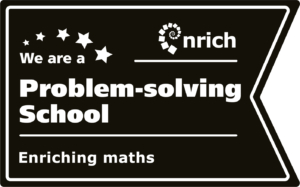Maths
Mathematics is essential for everyday life and understanding our world. It is also essential to science, technology and engineering, and the advances in these fields on which our economic future depends.
It is therefore fundamentally important to ensure that all students have the best possible mathematics education. They need to understand the mathematics they learn so they can be creative in solving problems, as well as being confident and fluent in developing and using the mathematical skills so valued in the world of industry and higher education, as well as those needed for everyday life.
The Mathematics Department will provide all students with a rewarding and enjoyable experience of mathematics. Through the development of students’ mathematical knowledge, we prepare students to become confident, numerate individuals who are able to utilise all aspects of mathematics in their chosen career and in their adult life. This will be accomplished through our commitment to excellent teaching, a well-designed curriculum with an interesting variety of lessons to motivate and engage all students.
We have high expectations of all students so that they will recognise and achieve their full potential. We encourage students to develop their own skills in analysis, reasoning, creativity, collaboration and self-evaluation so that they can meet the mathematical problems they face with thoughtfulness and enthusiasm.
- Our Repeat Concepts are:
- Multiplicative changes
- Communication and Reasoning
- Applications
- Algebraic techniques
- Representations
We provide all students with a challenging and enjoyable mathematics curriculum in a supportive and motivating environment. As part of our extended curriculum, we encourage our students to take part in a variety of maths challenges and we have been particularly successful in the UKMT Team Challenge and students have the opportunity to sit extra qualifications including the Level 2 Certificate in Further Maths.
Literacy in mathematics is developed via the teaching and discussion of Tier 2 and 3 vocabularies in lessons. In addition to encouraging wider literacy engagement a list of fiction books has been provided to the library so that students have access to a selection of literature that involves mathematical content. Students are encouraged to explore Mathematical language particularly when studying statistics and where this language is used in the wider context. Guided reading texts are being used throughout the curriculum to provide students with tools to make sense of the history of mathematics as well as develop their literacy skills and recognise the cross-curricular links attributed to reading and interpreting text.
“Mathematics is not about numbers, equations, computations, or algorithms: it is about UNDERSTANDING”
William Paul Thurston
We are very excited to be working with NRICH on developing our approach to problem solving in maths and across the school. The NRICH project aims to enrich the mathematical experiences of all learners and promotes the ethos that mathematical ability is not fixed: everyone can learn and make progress!


